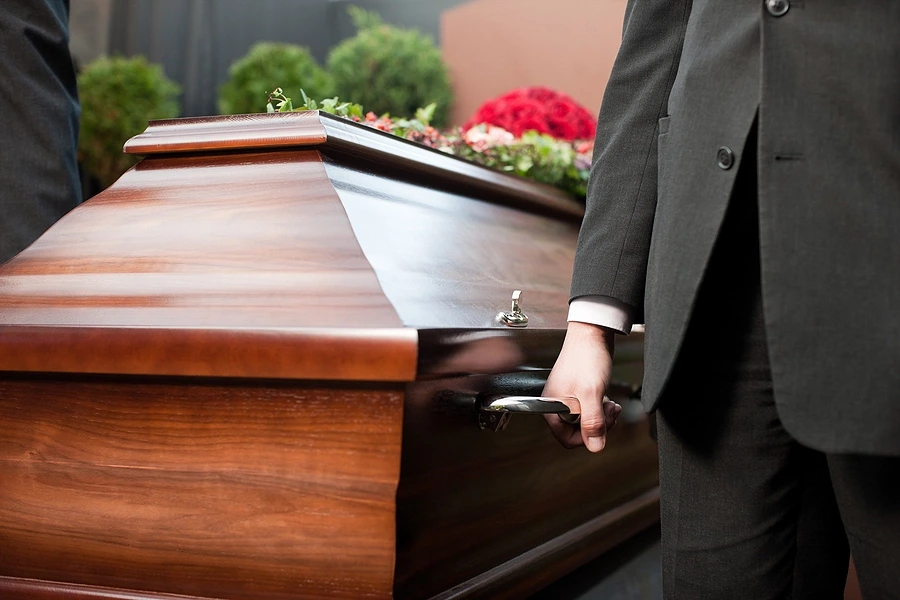Wrongful Death Lawyer Easley

The unexpected loss of a loved one is one of the most painful experiences anyone can endure—especially when that loss was caused by someone else’s recklessness or negligence. While no legal action can undo what happened, pursuing a wrongful death claim can provide financial relief and a sense of justice. At Mann, Blake & Jackson, we help grieving families in Easley navigate this difficult process with compassion and skill. A wrongful death lawyer from our firm will stand by your side every step of the way. Contact us at 864-777-4262 for a free consultation and let us help you seek accountability.
What Is A Wrongful Death Claim In South Carolina?
Losing someone unexpectedly is devastating. When that loss could have been prevented, the grief is often coupled with questions and frustration. In South Carolina, the law allows families to pursue compensation when a loved one dies due to someone else’s actions. This type of legal action is called a wrongful death claim, and it exists to help families seek justice and accountability.
This process isn’t easy, and the legal path can feel overwhelming when emotions are already running high. Still, understanding what a wrongful death claim involves in South Carolina can help families make informed decisions during a difficult time.
What Makes A Death “Wrongful” Under The Law
Not every accidental death qualifies for a wrongful death claim. In South Carolina, a death is considered wrongful when it results from another party’s negligence, recklessness, or intentional wrongdoing. These cases are governed by state statutes that outline who can file a claim and what must be proven.
Some common scenarios that lead to wrongful death claims include:
- Fatal car or truck accidents caused by another driver
- Workplace accidents due to safety violations
- Medical malpractice resulting in a preventable death
- Nursing home neglect or abuse
- Defective products that lead to fatal injuries
- Criminal acts like assault or drunk driving
It’s not about criminal charges—though those can happen too—but rather about holding a party financially accountable for the harm they caused.
Who Can File A Wrongful Death Claim In South Carolina
In this state, the wrongful death lawsuit must be filed by the executor or administrator of the deceased person’s estate. This is often a family member, but not always. If the deceased had a will, the executor is typically named in that document. If there is no will, the court will appoint someone to serve in that role.
The compensation from a successful wrongful death claim is meant for surviving family members. This typically includes:
- The spouse and children of the deceased
- If there is no spouse or child, then the deceased’s parents
- If none of the above are living, other heirs according to state law
What Compensation Can Be Recovered
No amount of money can make up for the loss of a loved one. However, financial compensation can ease the burden left behind. The damages available in a South Carolina wrongful death claim may include:
- Funeral and burial expenses
- Medical costs related to the fatal injury or illness
- Lost income or financial support the deceased would have provided
- Pain and suffering of surviving family members
- Loss of companionship, guidance, or protection
In rare cases, the court may also award punitive damages. These are meant to punish especially reckless or malicious behavior, such as drunk driving or gross medical negligence.
How Negligence Must Be Proven
Just like in personal injury cases, the foundation of a wrongful death claim is proving negligence. The estate must show that:
- The defendant owed the deceased a duty of care
- That duty was breached through action or inaction
- The breach caused the death
- The surviving family members suffered losses as a result
This might sound straightforward, but it often requires a thorough investigation. That includes gathering evidence like accident reports, witness statements, expert testimony, medical records, and more. A single weak link in that chain can undermine the case, which is why having legal support is often essential.
How Long You Have To File A Claim
South Carolina law limits the time families have to bring a wrongful death lawsuit. The statute of limitations is generally three years from the date of death. There are exceptions, but they are limited.
Missing this deadline can mean losing the right to pursue compensation altogether. That’s why it’s important to act sooner rather than later—even if it feels too soon emotionally—so evidence is preserved, and legal rights are protected.
How A Lawyer Can Help Your Case
Wrongful death claims are complex. They often involve multiple parties—like insurance companies, hospitals, or corporate defendants—each with their own legal teams. A personal injury attorney with experience handling wrongful death claims in South Carolina can handle the legal legwork while you focus on grieving and healing.
An attorney can:
- Determine if you have a valid claim
- Identify all liable parties
- Calculate the full extent of your damages
- Handle settlement negotiations
- Prepare the case for trial if necessary
Having someone on your side who understands the process can relieve a great deal of stress and improve your chances of a fair result.
Why You Should Trust a Wrongful Death Attorney During This Difficult Time
The pain of losing a loved one due to someone else’s negligence is overwhelming, and no legal action can ever replace what you’ve lost. But with the guidance of a wrongful death attorney, you can seek justice and protect your family’s future. At Mann, Blake & Jackson, we provide compassionate, committed representation to families in Easley facing unimaginable loss. We handle every case with the respect it deserves, while aggressively pursuing the compensation and accountability you need. If you’ve lost someone due to a preventable tragedy, call 864-777-4262 for a free consultation. We’re here to stand by your side when it matters most.

